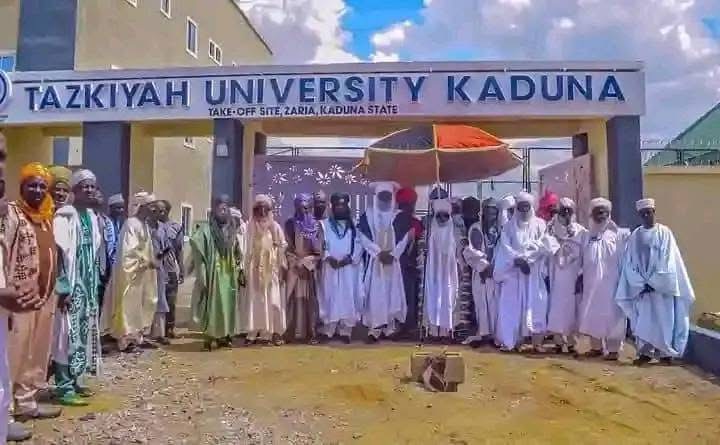
Nigeria has officially launched its first-ever female-only university, Tazkiyah University, a development that both dominates trending conversations and highlights the growing focus on women’s education in the country. Located in Zaria, Kaduna State, the institution was founded by Professor Ibrahim Maqari—Chief Imam of the National Mosque in Abuja—and has earned praise as a historic milestone for gender inclusion in tertiary education.
The Grand Khalifa of Tijaniyyah, Sheikh Aminullah Akoshile, commended Prof. Maqari for this vision, describing the initiative as “divine intervention” that will empower women and uphold Islamic values of dignity and knowledge.5 He emphasized that offering a women-only educational environment promotes inclusion, particularly in regions where cultural norms limit female access to learning.
Reports suggest that Tazkiyah University may even employ only female lecturers, further reinforcing its mission of female-centered academic empowerment. The university is now among nine new private institutions recently accredited by the National Universities Commission (NUC), and operations are set to begin in Zaria before transitioning fully to Kaduna.
Tazkiyah University marks a bold and promising chapter for women’s higher education in Nigeria. It symbolizes hope for greater female participation in scholarly and professional arenas. But it must now deliver academically and inclusively, ensuring that its curriculum, faculty, and outreach genuinely elevate women across socioeconomic backgrounds.
The spark of optimism is there—now it’s up to policymakers, educators, and communities to fan the flame.
But can a female-only university truly solve the deeper issues facing women in Nigeria’s education system?
Or will it become another elite institution out of reach for the average girl?
Time will tell—but the questions remain louder than the applause.